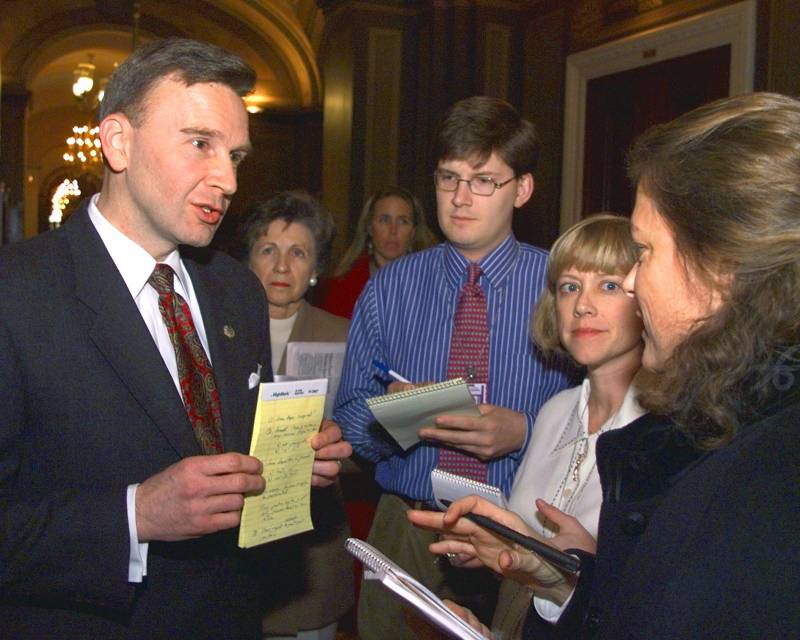James Rogan says he never wanted to be on the House Judiciary Committee, much less an impeachment manager prosecuting the case against President Bill Clinton.
But he did. And it ended his career in politics.

James Rogan says he never wanted to be on the House Judiciary Committee, much less an impeachment manager prosecuting the case against President Bill Clinton.
But he did. And it ended his career in politics.
It was January 1998 when Palm Springs Republican Rep. Sonny Bono died suddenly in a ski accident, leaving a vacancy on the committee. House Judiciary Committee Chairman Henry Hyde convinced Rogan, a second-term Los Angeles congressman, and former trial attorney, municipal judge and state assemblyman, to fill the slot in mid-January.
“The next morning, I was flying from D.C. to L.A., and I see a headline about an intern scandal breaking at the White House,” recalled Rogan, now an Orange County Superior Court judge. “And by the time I landed in L.A., all hell had broken loose. I was on the Judiciary Committee for all of about six hours when the Monica Lewinsky scandal broke.”
And that started the movement toward impeachment.
Rogan, a Republican, was elected in 1996 with 50.1% of the vote to represent the 27th congressional district in Los Angeles. The district was becoming more Democratic, and then-House Speaker Newt Gingrich took Rogan aside to tell him he could vote against the articles of impeachment if he was concerned about potential political backlash back home.
But Rogan said he thought, based on the evidence, that voting yes was the right thing to do, despite the political consequences.
“So I knew ahead of time, I knew way back then, that it was going to cost me my seat,” Rogan said. “I was under no illusions that this was gonna be a popular thing.”
Rogan said he was actually surprised the House passed the articles of impeachment, crediting South Bay Republican Rep. Tom Campbell for helping to convince moderate Republicans to vote yes.
Rogan said he did not lobby Gingrich to make him an impeachment manager and had no idea he would be chosen.
“And when reporters kept sniffing around with me, asking, you know, ‘Do you think you’ll be a house manager?’ I told them, no, that if I were going to be a house manager, I presumed by now somebody would talk to me about it.”
After Clinton was acquitted by the Senate, Democrats targeted Rogan for defeat. Adam Schiff, who was then a member of the state Senate, was the Democrats’ nominee. Rogan says impeachment was hardly mentioned in the candidates’ debates before the election.
“[Schiff] didn’t talk about it during the campaign when we were debating it. But it’s how he raised millions of dollars,” Rogan said. “Schiff raised millions of dollars. I raised millions of dollars at the time. That was the most expensive House race in American history” at that time.
Schiff defeated Rogan in November 2000 with 53% of the vote and has easily won reelection every two years since then.
Rogan later served in the George W. Bush administration before being appointed by Gov. Arnold Schwarzenegger, in 2006, to the Superior Court of Orange County. A year later, Bush nominated Rogan to the federal bench, but Democrats blocked a vote on his nomination, citing his role as a House impeachment manager as justification. He remains on the Orange County bench to this day.
As a judge, he is prevented by judicial ethics from talking about the current impeachment of President Trump.

To learn more about how we use your information, please read our privacy policy.